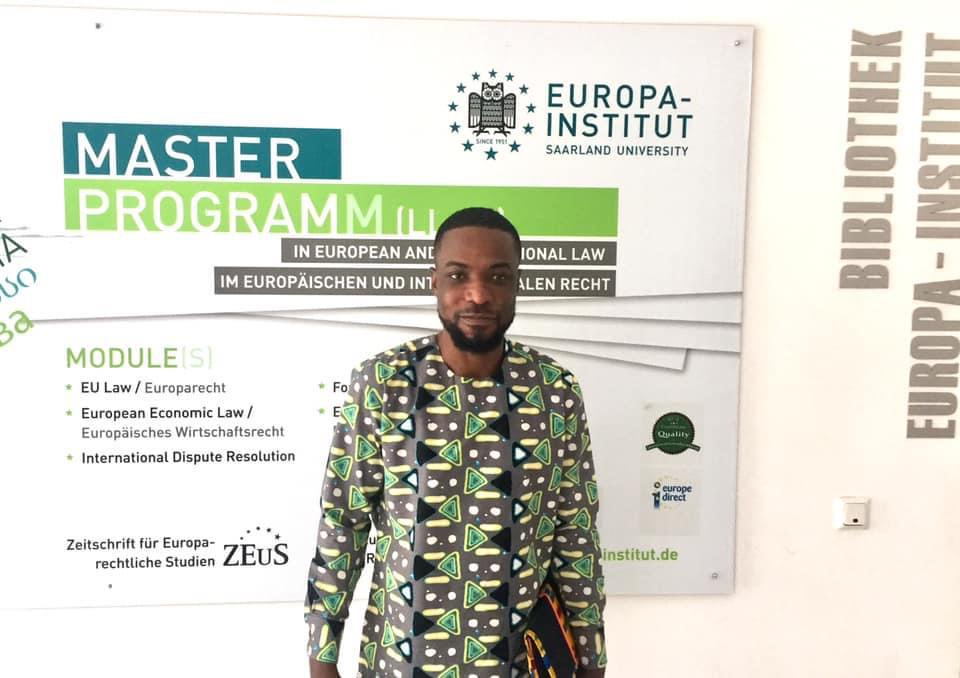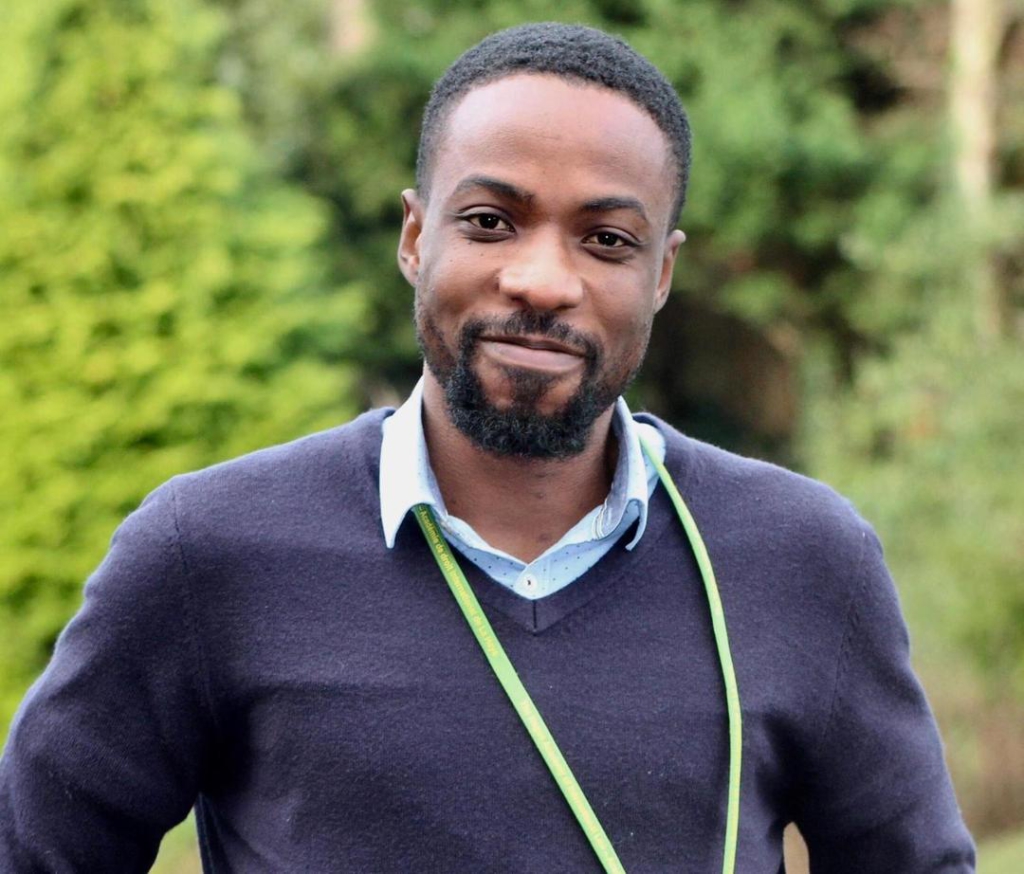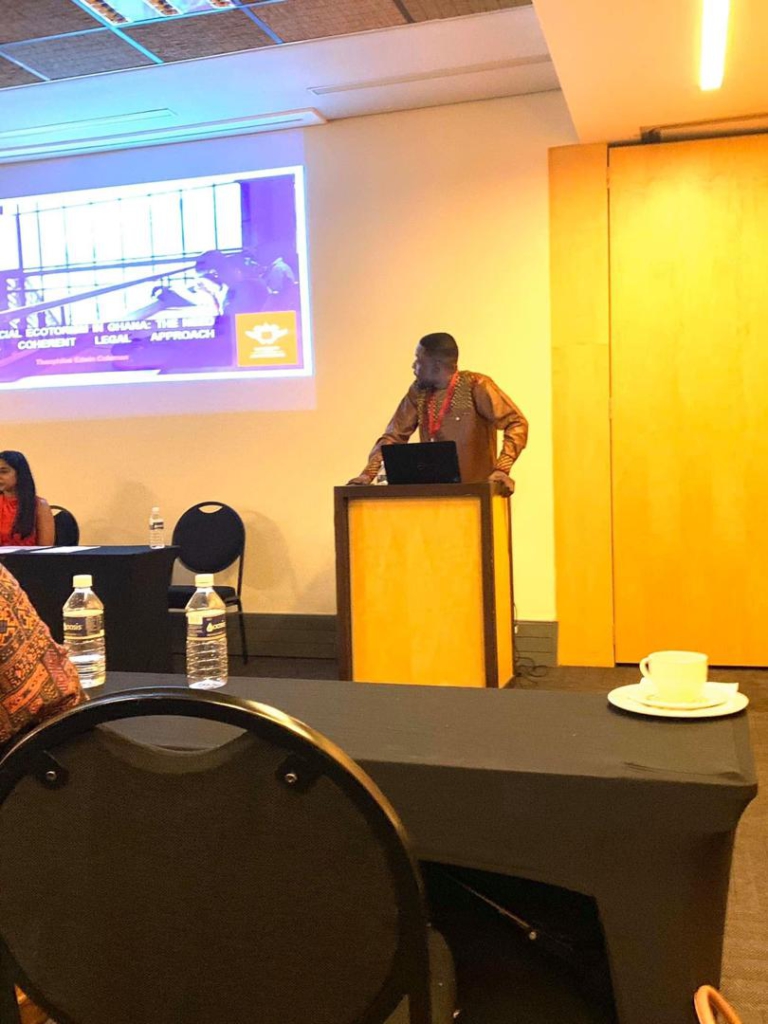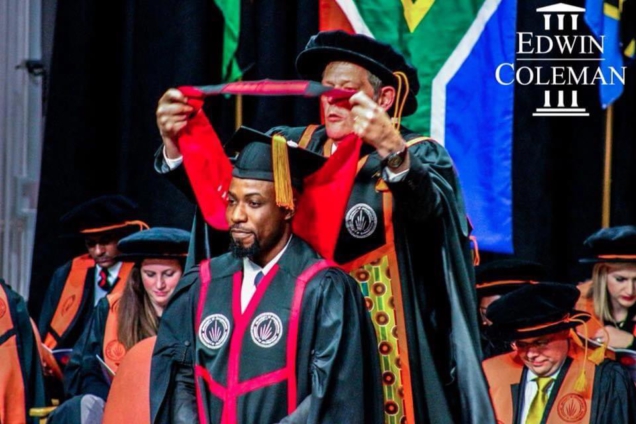For many who will meet Theophilus Edwin Coleman in the years to come, they are most likely to simply call him “Doc”. For that is what he is. But earning this title didn’t come easy.
In fact it started off on the wrong footing and took series of twists and turns of fate to get him to this stage.
It was a quest to succeed despite being told he wasn’t good enough to enter the prestigious Ghana School of Law.
Coleman was among thousand of students who had failed to enter the School of Law after taking an entrance exam and interview session.
He became an example used by persons pushing to have the law school opened up.
For he had graduated with a first-class degree in Law from the University of Cape Coast. Prior to that, he had studied Political Science and Information Studies at the University of Ghana.
“I completed UCC Law School in 2016 with a CGPA of 3.83. It came as a surprise that I failed the exam - and many of my classmates were also surprised! I don’t think I underestimated the exam, so I really don’t know what happened.
I even got a very rare opportunity to prep most of my classmates that made it to Makola. So it came as a surprise to me, really. Feeling wise, I felt a bit disappointed, in the system, especially knowing I couldn’t challenge the outcome.” Dr.Coleman recalls.

Born in Cape Coast some 31 years ago, Dr. Coleman says the rejection came to him more as a disappointment rather than a painful experience.
He then turned his attention to pursuing higher degree and got into the University of Johannesburg where he graduated with a first class in International Commercial Law (LLM).
He then went a step further to pursue his LLD which focused on the theoretical foundations and the practical perspectives of the concept of contractual freedom and autonomy in Commonwealth Africa.
Edwin is an alumnus of The Hague Academy of International Law in The Netherlands. He has also completed an internship program at the Hague Conference on Private International Law (HCCH).
In furtherance of his LL.D studies, Edwin was invited to serve as a Research Fellow at the Institute of European Law in Germany. In 2018, he received an award from the Ghana National Students’ Awards Scheme as one of the Six Most Influential Student Personality in Ghana (home and abroad).

His LLD explored the degree to which commonwealth African countries ascribe respect to the notion of contractual liberty by taking into account the politico-economic orientations of governments, pronouncements by courts, constitutional underpinnings, and the impact of traditional African values such as Ubuntu on contract and commercial law jurisprudence in Commonwealth Africa.
The thesis also develops a matrix for assessing the degree of respect and commitment to contractual freedom and autonomy in Commonwealth Africa.
What does the future hold for Dr. Coleman?
“My plan is to return to Ghana and fully enter into academia. For now however, I serving as a Postdoctoral Research Fellow at the Centre for International and Comparative Labour and Social Security Law at the University of Johannesburg”, He answers.
One cannot help but wonder whether the young man has given up on his dreams of becoming a lawyer
“I do not see myself going to Ghana law school anytime soon. There are so many problems with legal education that has to be resolved. One of it is the lack of academics. The number of doctorate holders in law can be counted couldn’t even get to 60. The average currently is around 42. So there is a real problem.
Besides, I believe, if becoming a courtroom practitioner is a calling, then becoming a teacher of that practitioner is a higher calling. I believe I have that higher calling and will therefore fully commit myself to academia.
My goal is to make academia attractive and encourage young smart law students to embark on the path of the higher calling, instead of making that monotonous decision of going to Ghana law school.”

He has some views on current admission system
“I think that the current system doesn’t do anyone any good. The system unnecessarily delays the economic utility of many young Ghanaians. It is just a repetitive system that should be there as an option and not the main solution.
There is nothing that is being taught at Ghana Law school that academics at the faculty can’t teach. It just requires a proper balance between academics and practitioners to find a common ground to resolve these challenges.
I have outlined many of the solutions in a book chapter I and a colleague worked on. I think that contribution will be helpful when it comes out. “
The journey has been tough but Dr. Coleman is simply glad and grateful.
“I am very grateful to many of the academics who guided me to take this path,” he concludes our discussion.
Latest Stories
-
DAMC, Free Food Company, to distribute 10,000 packs of food to street kids
44 minutes -
Kwame Boafo Akuffo: Court ruling on re-collation flawed
1 hour -
Samuel Yaw Adusei: The strategist behind NDC’s electoral security in Ashanti region
1 hour -
I’m confident posterity will judge my performance well – Akufo-Addo
1 hour -
Syria’s minorities seek security as country charts new future
2 hours -
Prof. Nana Aba Appiah Amfo re-appointed as Vice-Chancellor of the University of Ghana
2 hours -
German police probe market attack security and warnings
2 hours -
Grief and anger in Magdeburg after Christmas market attack
2 hours -
Baltasar Coin becomes first Ghanaian meme coin to hit DEX Screener at $100K market cap
3 hours -
EC blames re-collation of disputed results on widespread lawlessness by party supporters
3 hours -
Top 20 Ghanaian songs released in 2024
4 hours -
Beating Messi’s Inter Miami to MLS Cup feels amazing – Joseph Paintsil
4 hours -
NDC administration will reverse all ‘last-minute’ gov’t employee promotions – Asiedu Nketiah
4 hours -
Kudus sights ‘authority and kingship’ for elephant stool celebration
4 hours -
We’ll embrace cutting-edge technologies to address emerging healthcare needs – Prof. Antwi-Kusi
5 hours

